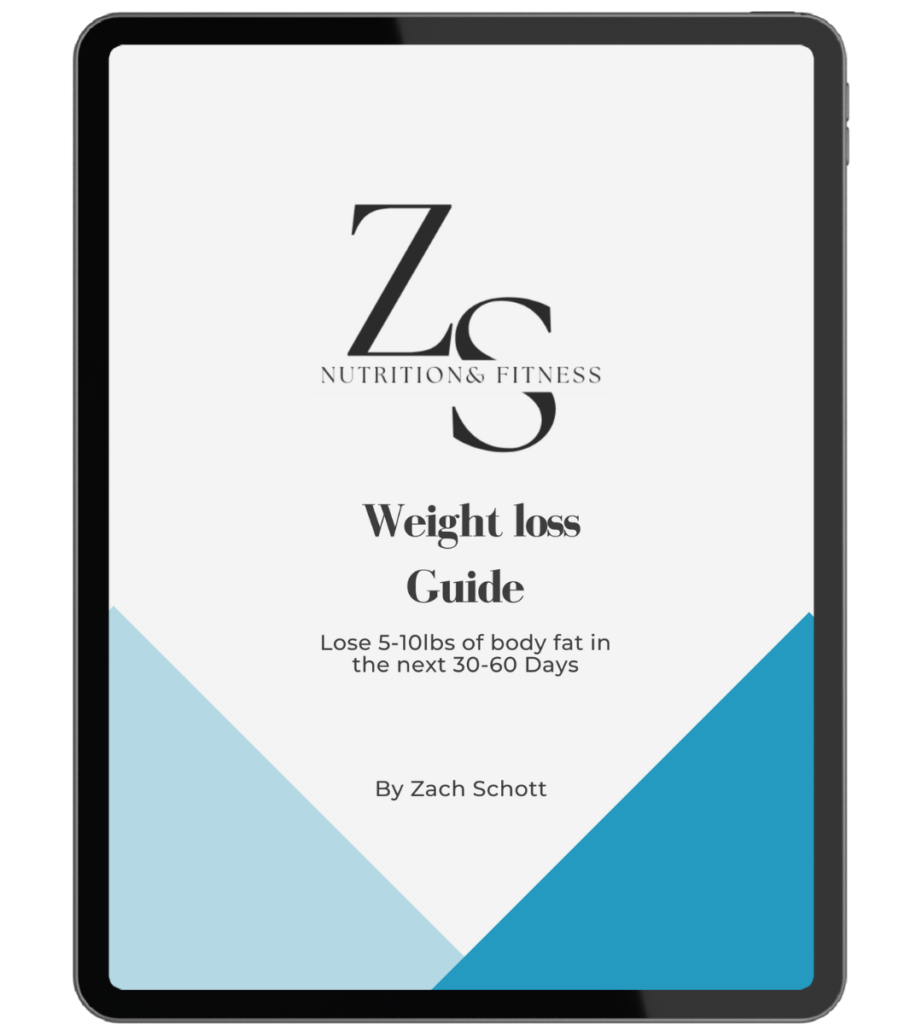How to Lose 10 Pounds in a Month
If you have ever wondered how to lose 10 pounds in a month,...
May 20, 2023
Weight loss plateaus can be frustrating and demotivating, especially when you’ve been diligently following a healthy diet and exercise routine. But fear not! In this article, we’ll explore what a weight loss plateau is, whether it will eventually go away, how long it usually lasts, and most importantly, effective strategies to break through this stagnation phase. Let’s dive in!

A weight loss plateau refers to a period during your weight loss journey where you experience little to no progress in shedding those extra pounds. Usually, a weight loss plateau is not actually a real plateau: Let me explain….
Most of the time when you see your weight not moving, it can last anywhere from a few days to a week. This does not automatically mean you are not losing body fat. Sometimes when you are losing weight, if you are exercising you are also gaining muscle, or as you lose body fat you might replace it with a little water weight. These two things do not mean you are not losing body fat, it just makes it look like the scale is not budging.




When weight loss truly stalls, not just when the scale is looking like it stopped, this is a weight loss plateau. It’s when your body adapts to the changes you’ve made, and the scale seems to be stuck at the same number for an extended period. This can happen if you have severely been undereating calories, or if you have been in a constant state of a caloric deficit for an extended period of time. More likely than not, you are not experiencing this, as most people take breaks, even if subconsciously. If this is the case, we recommend eating at your maintenance level for a week or two to upregulate your metabolism again.
Yes, weight loss plateaus can eventually go away. Remember, weight loss is not a linear process. Your body needs time to adjust to the new lifestyle changes, and hitting a plateau is a natural part of the journey. It’s crucial to stay patient and persistent in your efforts. Like we mentioned before, you most likely are not experiencing a real plateau and fat loss is happening, but it does not look like it on the scale which can be so frustrating! Do not give up, trust the process.

The duration of weight loss plateaus can vary from person to person. On average, most plateaus tend to last between two to three weeks. However, some individuals may experience shorter or longer plateaus, depending on factors such as adherence to a calorie deficit, body composition, and the level of activity.
Experiencing a weight loss plateau despite maintaining a calorie deficit can be disheartening. Several reasons could explain this phenomenon:
Metabolic Adaptation: As you lose weight, your body’s metabolism may slow down, leading to fewer calories burned. Adjusting your calorie intake or incorporating new exercises can help counter this.
Inadequate Calorie Tracking: It’s possible that you might be underestimating your calorie intake or overestimating the calories burned during exercise. Accurate tracking is essential to ensure you’re in a calorie deficit.
Inconsistent Activity Level: You are very sedentary or you are very inconsistent with your activity. Try and get a consistent level of activity from week to week.







Weight loss plateaus can occur at any point during your journey. Initially, you may experience rapid progress, followed by occasional plateaus. As you approach your target weight, plateaus may become more frequent. However, everyone’s weight loss journey is unique, so there’s no definitive frequency.
Evaluate Your Calorie Intake: Double-check your calorie tracking to ensure accuracy. Reassess your tracking effort. Ask yourself the following questions;
Adjust Your Activity Level: If you are not already moving your body intentionally everyday by working out or taking many walks, try adding in an extra walk everyday. More movement increases your TDEE. If you are not familiar with your current TDEE or BMR, please use our free calorie calculator here!
Reassess Your Macros: Ensure your macronutrient ratios align with your goals. Adjusting the balance of carbohydrates, proteins, and fats in your diet can have a positive impact on breaking through a plateau. Did you know that protein has a higher thermic effect, meaning it takes more energy to break down and digest. If you aim for a higher protein intake, eating close to 1 gram of protein per pound. If you are on the larger side, say 220 pounds or more, you can aim for at least .7 grams of protein per pound at first.
Stay Hydrated: Drinking an adequate amount of water is crucial for maintaining fluid balance. Pay close attention to your electrolytes as well, if you are not eating enough foods that contain potassium and magnesium, your balance with sodium will be off and you will likely hold more fluid.
Manage Stress Levels: High stress can hinder weight loss progress. Incorporate stress management techniques such as meditation, yoga, or engaging in hobbies that help you relax.
Sleep Quality: If you are not getting enough sleep, or the sleep you are getting is poor, this can slow your overall performance and weight loss. Sleep is so important for our metabolism and muscle building process. Make sure you are trying to get 7-9 hours of sleep per night. If you are not, try and address the issues preventing you from getting quality sleep.
Experiencing a weight loss plateau is a common obstacle faced by many individuals on their journey to a healthier lifestyle. Remember, more likely than not you are not truly stalled in real fat loss, it can just look like it on the scale. Stick with the calorie deficit and be patient, progress will happen. Most people give up when they hit plateaus, it can be so frustrating. Trust the process and keep on trucking!
If you are struggling with your weight loss, or you just need a boost, make sure to take advantage of a free coaching call here!
Weight loss plateaus can be frustrating and demotivating, especially when you've been diligently...


Get the step by step process to help you lose 5-10 pounds of body fat in the next 30-60 days.
*Bonus free sample meal guide as well inlcuded